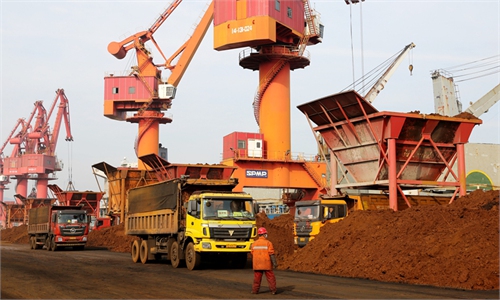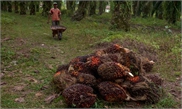
Farmers sort palm oil when it is newly harvested in Banyuasin District, South Sumatra, Indonesia on February 17. Photo: VCG
The Dalian Commodity Exchange introduced overseas traders on palm oil futures trading on Tuesday, marking a major step in enhancing the exchange's status and helping strengthen risk management.
Palm oil futures were listed on the Dalian Commodity Exchange in 2007, and have become an important tool for risk management. The price of palm oil has risen from about 4,400 yuan ($672.2) per ton in April to 7,200 yuan per ton in November, an increase of 63 percent.
According to regulations, overseas traders can use yuan, standard warehouse receipts, treasury bonds and foreign exchange funds as margin to trade the 12 contracts currently listed on Dalian exchange.
Hu Jie, deputy director of the agricultural products division of the Dalian Commodity Exchange, said introduction of foreign traders to participate in palm oil futures trading will promote the integration of domestic and foreign futures markets, which will provide global customers fairer pricing references and more efficient tools for risks control, media reported.
Experts said foreign players coming into the field will inject higher liquidity to the domestic palm oil futures marker, forming a complete industrial risk management chain, encompassing production, processing and consumption, in line with China's "dial circulation" new development pattern and the Belt and Road Initiative.
In 2019, China consumed 6.46 million tons of palm oil, close to 10 percent of global output, according to media reports. At present, the country has seven international futures varieties including palm oil, crude oil and iron ore.
Palm oil is mainly used in processed foods, including instant noodles and biscuits, as well as cosmetics. China is the world's second largest importer and third largest consumer of palm oil.


